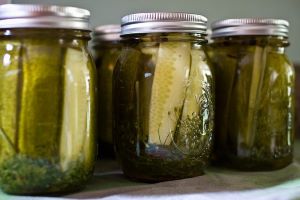Find more information about this license on our Grain Licensing page.
Minnesota Statute Chapter 27 helps to protect sellers of farm products through the farm products dealers trust which, once
Today, Americans eat from one of the safest food supplies in the world.

What are the Rapid Response Teams (RRTs)?
RRTs are multi-agency, multi-disciplinary teams
Bee Kill Investigation
The MDA investigates alleged bee kills.

The Minnesota Department of Agriculture (MDA) has awarded more than $560,000 in grants to support workforce development and hands-on training in meat processing across the state. Funding was made available through two complementary programs: the Meat Processing Train and Retain Grant program and the Agricultural Growth, Research, and Innovation (AGRI) Meat Education and Training (MEAT) Grant program.
Through the Train and Retain Grant program, the MDA awarded $341,690 to three organizations working to build and strengthen the workforce for small- to medium-sized meat and poultry processors. This one-time funding supports hiring and employee retention efforts through eligible activities such as tuition reimbursement, sign-on and retention bonuses, and childcare stipends. These investments are designed to help address critical workforce shortages in the meat processing industry.
Train and Retain Grant Recipients
- Latino Economic Development Center – Will support a new meat processor in Lismore and up to five additional facilities with hiring and employee training.
- Region Five Development Commission – Will fund meat processing course tuition and sign-on bonuses to assist processors within a 60-mile radius.
- Mapleton Economic Development Authority – Will help hire and train two full-time employees at a new processing facility in the area.
In addition to the Train and Retain Grant program, the MDA awarded $222,360 in fiscal year 2025 through its AGRI MEAT Grant program. This program helps schools establish or expand meat cutting and butchery training programs by funding equipment purchases, facility renovations, curriculum development, and faculty training for both new and existing butchery programs. Six schools across Minnesota received funding through this program. See awardees and project descriptions below.
“These grant programs are part of our ongoing efforts to support workforce development and ensure a thriving meat processing sector,” said Agriculture Commissioner Thom Petersen. “By investing in both industry training and education, we’re helping to meet growing demand while creating meaningful career opportunities for the next generation.”
The AGRI Program administers grants to farmers, agribusinesses, schools, and more throughout Minnesota to advance the state’s agricultural and renewable energy sectors.
2025 AGRI Meat Education and Training (MEAT) Awards
| School Name | Project summary | Award Total |
| Battle Lake High School | Development of a hands-on meat science curriculum that prepares students for careers in meat processing. The project will provide critical skills in meat handling, processing, safety, and industry regulations. The meat science course will be housed within the existing agricultural program. | $66,069.96 |
| Dover-Eyota Schools | Incorporation of hands-on wild game processing into existing natural resource courses. The project will equip students with skills in meat handling, food safety, and introduce them to career opportunities in the meat industry. | $11,716.12 |
| Holdingford Schools | Multi-phase development of meat processing coursework that uses collaborative relationships with local lockers and creates a workforce pipeline. One ag classroom will be converted into a meat processing area, and students will have processing units incorporated into existing ag classes. | $28,010.00 |
| Little Falls Community Schools | Incorporation of meat processing education into an existing ag science program. Students will learn about food safety, meat cutting skills, and a meat industry career path through hands-on learning and guided instruction. | $37,911.84 |
| Staples-Motley High School | Establishment of a meat cutting and butchery curriculum that provides high school students hands-on learning and career pathways. Students will gain skills in meat processing, food safety, and business development. | $53,416.67 |
Wabasso School District
| Establishment of a meat science course offered twice per year, introducing over 30 students to the meat industry yearly. The course will incorporate training in meat processing and learning from the many local lockers in the area. | $25,235.66 |
###
Media Contact
Nikki Warner, MDA Communications
651-238-7909
Nikki.Warner@state.mn.us

